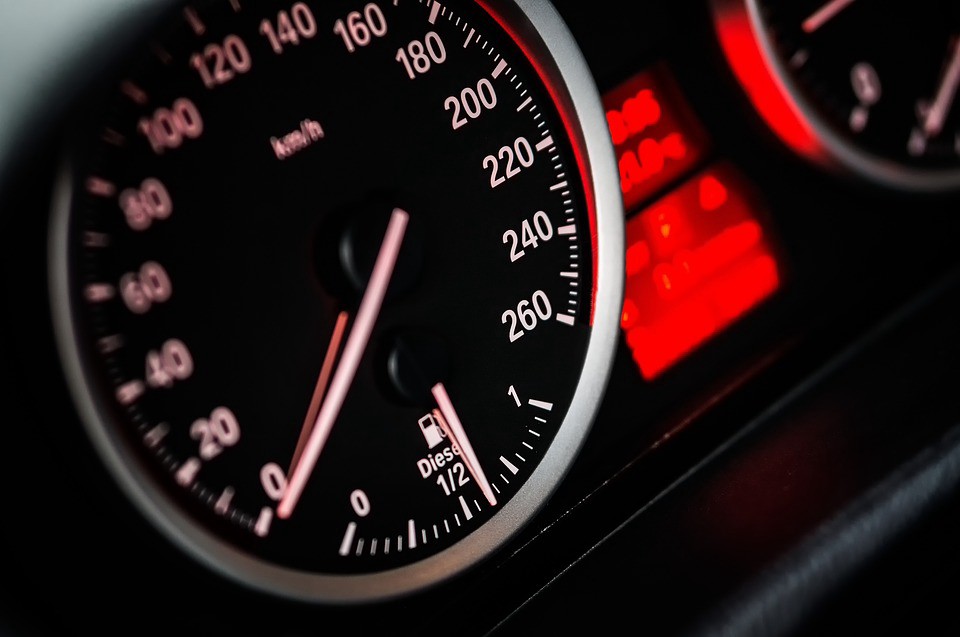
North Church Street’s 40 mile per hour speed limit will remain in place with the only reduction in speed occurring over a two block radius.

Following traffic studies conducted by both Moorestown Township and Burlington County, North Church Street’s 40-mile-per-hour speed limit will remain in place with the only reduction in speed occurring over a two-block radius. North Church Street from Farmdale Road to Flynn Avenue with see a reduction from 40 miles per hour to 35, with the speed limit remaining unchanged on the remainder of Church Street.
Deputy Township Manager Thomas Merchel delivered the news during his manager’s report at the Monday, July 24 Moorestown Township Council meeting, which prompted both council members and several residents with homes along Church Street to question the decision and what can be done to improve safety moving forward.
Council adopted a resolution at its May 8 meeting requesting the Burlington County traffic engineer perform a study and analysis on North Church Street between Main Street and Flynn Avenue for consideration of a speed limit reduction. The resolution came on the heels of concerns from residents regarding the volume and speed with which motorists were driving on the county road, which is a major route for vehicles travelling from Route 38 to Route 130.
“There is a need to reassess the speed limit along [North Church Street] due to safety concerns with the change in demographics over recent years and additional volume of tractor trailer traffic traveling through the narrowing road section of [North Church Street] between Main Street and Flynn Avenue,” the resolution read.
Merchel said several residents have inquired to follow up since May 8. Both the county’s and township’s studies found the average speed of motorists transiting Church Street is between 36 and 38 miles per hour.
“That’s not the answer we wanted to hear, but like I said, our guys did our own study and got the same thing, the same results,” Merchel said.
Council member Lisa Petriello inquired as to how the county made the determination that the speed should remain unchanged.
Merchel said in speaking with the county, he found any changes to speed limits on county roads are made via a “scientific determination.” If 85 percent of the traffic is driving within the posted traffic limit, then by the county’s criteria, the current speed is working.
“The township has no ability to lower that because it’s not our road,” Merchel said. “We can only ask the county, and that’s what we did through the resolution.”
Church Street resident Paul Conlow questioned whether there was a way to dispute the county’s algorithms. He asked why residents’ concerns held no bearing when the county makes its decisions.
“Obviously, the people on the street who live on the street are anxious for a lower speed limit,” Conlow said.
Merchel said he spoke with the county engineers to try to get a better understanding.
“They say it’s purely scientific,” Merchel said. “They have to draw the line somewhere because everybody on every street wants the speed limit lowered.”
Fellow Church Street resident Frederick Sutherland asked if the county will not reduce the speed and the township cannot, then what other means does the township have to get people to slow down. Sutherland suggested placing electronic speed signs along the thoroughfare.
“If you want to put one in front of my house, I don’t care,” Sutherland said. “Seriously, I don’t because I’m tired of it — tractor trailers flying up and down the road at night and during the daytime.”
Jeffrey Hipple of Church Street said if he pulls out of his driveway and doesn’t hit 40 miles per hour quickly enough, motorists honk. He said he thinks the problem on Church is largely psychological with people coming off Route 130.
“They get in the zone, I think, and they don’t realize it’s a residential area,” Hipple said.
Hipple said he wondered what the township could do to get people to pay more attention to the change in road from Route 130 to a residential area.
Mayor Manuel Delgado said any permanent signage has to be done by the county as it controls the road, but mobile speed signs are an option.
Petriello suggested stationing a police officer along Church.
“Maybe if the speeders saw a car out there on a regular basis it might prompt the speeders to be more mindful,” Petriello said.
In her own research, Petriello said studies show painting lines on the road that successively get closer together with the speed limit written within them have also been shown to reduce speeds. She said the lines serve as a visual reminder to slow down, and this technique is something the township could do without changing the structural contour of the road.
Council member Michael Locatell said unfortunately, there’s not a lot the township can do about the speed limit as the road is county controlled, but it can look into painted lines, solar speed signs and other “softening effects” to reduce speeds.
“We share your frustration,” Locatell said. “We’re not going to just walk away from this.”









